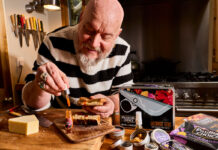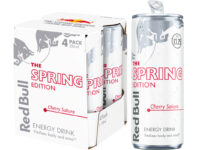Figures show Soft Drinks Industry levy has had little impact on consumer habits since it was introduced in the spring

WHEN then chancellor George Osborne first announced plans to introduce a Soft Drinks Industry Levy in March 2016, it was akin to firing a starting pistol of reformulation.
Since the announcement, brands like Irn-Bru and Lucozade have seen their sugar contents slashed, while others opted to instead reduce packaging size to maintain their price point.
Now that the sugar tax has a full summer under its belt, an early picture of the impact of the policy is starting to emerge.
So how much of an impact has the Soft Drinks Industry Levy had on category sales?
Not much, would seem to be the answer.
Figures provided by EPOS specialist The Retail Data Partnership (TRDP) paint a picture of a category continuing to perform almost as if the levy hadn’t been introduced.
EPOS sales data collected from 1,564 c-stores across the UK from 1 July 2016 to 30 June 2018 show the levy doesn’t appear to have had an adverse effect on soft drink sales.
Despite a step change in price per 100ml for full sugar cola products, which increased from around 12.67p per 100ml in March 2018 to 16.88p per 100ml in June, total units sold still managed to achieve growth.
And when flavours are removed, the sugar tax’s limited impact on consumer spending habits comes into clear focus.
The number of shoppers who said they would continue to buy sugary soft drinks has increased since the tax came into effect.
A price hike from 11.4p per 100ml in March 2018 to a peak of 14.2p per 100ml in May was mirrored by equally steep unit sales growth, suggesting consumers have not been turned off by rising prices.
The sales trends seen in the cola subcategory were also replicated across sports and energy drinks, and non-cola carbonates, with neither subcategory experiencing any major changes in consumer spending habits.
Milk-based drinks, which are exempt from the Soft Drinks Industry Levy, do not appear to have made any significant gains either.
Since the introduction of the sugar tax, the Scottish Government has suggested its scope should be broadened to include milk-based drinks containing less than 95% milk. Such a move would see the levy applied to the vast majority of the brands in the category.
According to TRDP figures for the last 24 months, sales from the subcategory’s top three brands, Yazoo, Nurishment and Funtime, make up 84% of all units sold in c-stores.
From these three brands, less than 1% of sales were from no added sugar variants. From the c-stores sampled, TRDP found no evidence of increased market share for milk-based drinks against brands subject to the sugar tax.
EPOS figures produced by TRDP chime with the latest consumer panel figures from market research firm Nielsen, which show the levy has had little impact on consumer behaviour.
The Nielsen survey revealed 62% of UK shoppers claim to have not changed their consumption behaviour in any way post-sugar tax, with only one fifth claiming they check sugar content on packages more frequently.
Nielsen also found 11% of shoppers claimed they planned to stop drinking sugary soft drinks prior to the tax, with this number falling to just 1% post-tax.
The number of shoppers who said they would continue to buy sugary soft drinks has increased since the tax came into effect, up from 31% in February to 44% in June.





















